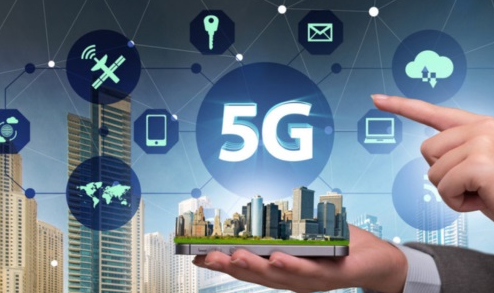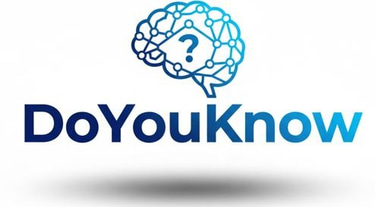Do You Know the Real Impact of 5G on Our Lives
5G is transforming our lives with ultra-fast speeds, real-time communication, and advanced connectivity. From healthcare and education to smart cities, entertainment, and agriculture, discover how 5G is revolutionizing industries, creating opportunities, and shaping a more connected future.
TECH & SCIENCE
Do You Know Team
7/27/20253 min read


The arrival of 5G technology is more than just an upgrade in mobile connectivity—it’s a revolution that promises to transform how we live, work, and interact with the world. Faster internet speeds, ultra-low latency, and massive device connectivity are just the beginning. But what is the real impact of 5G on our daily lives? Let’s explore how this technology is reshaping industries, society, and the future of human interaction.
1. Unprecedented Internet Speeds
5G offers speeds up to 100 times faster than 4G. This means downloading movies in seconds, streaming ultra-HD videos without buffering, and enabling high-quality video calls even in crowded areas. For consumers, it translates to seamless digital experiences, while for businesses, it opens doors for advanced applications.
2. Ultra-Low Latency for Real-Time Communication
Latency—the delay in data transfer—drops dramatically with 5G, enabling real-time responsiveness. This is critical for technologies like self-driving cars, remote surgeries, and online gaming. It ensures that communication between devices and systems happens almost instantly.
3. Boost to Smart Cities
5G will power smart cities by connecting sensors, cameras, and IoT devices. From smart traffic lights that reduce congestion to energy-efficient grids, the technology enables urban areas to become safer, greener, and more efficient. Citizens will experience better services and improved quality of life.
4. Healthcare Transformation
One of the most profound impacts of 5G is on healthcare. Remote surgeries with robotic arms, telemedicine consultations in rural areas, and AI-powered diagnostics all rely on ultra-reliable, high-speed connections. This makes quality healthcare more accessible and reduces the gap between urban and rural health services.
5. Revolutionizing Education
5G enhances e-learning by enabling immersive technologies like virtual reality (VR) and augmented reality (AR). Students can attend virtual classrooms, explore 3D models, and experience real-time simulations. Education becomes more engaging and inclusive, reaching students across remote areas.
6. Empowering Industry and Manufacturing
Known as Industry 4.0, 5G allows factories to run automated machines, monitor processes remotely, and use predictive maintenance to reduce downtime. This boosts productivity, reduces costs, and makes industries more competitive globally.
7. Entertainment Like Never Before
The entertainment industry is set to transform with 5G. Live streaming of sports, concerts, and gaming will be more immersive, with AR/VR adding new dimensions. Cloud gaming services will thrive, as gamers can play high-graphic titles instantly without expensive consoles or PCs.
8. Agriculture and Rural Development
5G will extend beyond cities, benefiting farmers through precision agriculture. IoT devices can monitor soil health, weather conditions, and crop growth in real-time. Farmers can access instant market prices and improve yields, bridging the rural-urban digital divide.
9. Impact on Jobs and Work Culture
While 5G may automate certain jobs through AI and robotics, it also creates opportunities in network management, cybersecurity, and IoT applications. Remote work will become more effective with stable, high-speed connectivity, changing the traditional office culture.
10. Challenges of 5G Adoption
Despite its benefits, 5G faces hurdles like high infrastructure costs, limited rural access, and cybersecurity risks. Concerns over radiation and data privacy also require careful regulation and public awareness. Addressing these challenges is crucial for realizing 5G’s full potential.
FAQ
Q1: How fast is 5G compared to 4G?
A1: 5G can be up to 100 times faster than 4G, with download speeds reaching 10 Gbps, allowing movies to be downloaded in seconds.
Q2: Will 5G replace Wi-Fi at home?
A2: Not entirely. While 5G provides ultra-fast mobile data, Wi-Fi remains cost-effective for households and businesses. Both technologies will coexist.
Q3: How will 5G affect healthcare in rural areas?
A3: 5G enables telemedicine, remote surgeries, and real-time patient monitoring, making healthcare more accessible in rural regions.
Q4: Are there risks associated with 5G technology?
A4: Challenges include cybersecurity threats, misinformation about radiation, and high infrastructure costs. However, scientific studies show 5G is safe when regulated properly.
Q5: How will 5G change daily life?
A5: From faster streaming and cloud gaming to smarter cities, efficient transport, and better healthcare, 5G will make life more connected, convenient, and innovative.
Conclusion:
The real impact of 5G goes far beyond faster internet. It is a technological revolution that touches every part of our lives—healthcare, education, agriculture, industry, and entertainment. By enabling smart cities, improving rural connectivity, and creating new economic opportunities, 5G has the power to reshape the future of society. While challenges remain, its potential to enhance quality of life and drive innovation worldwide is undeniable. Embracing 5G means embracing the future.
#5GTechnology #FutureOfConnectivity #SmartCities #5GImpact #DigitalRevolution #5GHealthcare #TechInnovation #FutureOfWork #5GInEducation #ConnectedWorld
Knowledge
Empowering minds with reliable educational content daily.
Newsletter Signup
© 2025 DoYouKnow. All rights reserved.
Stay Ahead of the Trends – Join Our Newsletter
